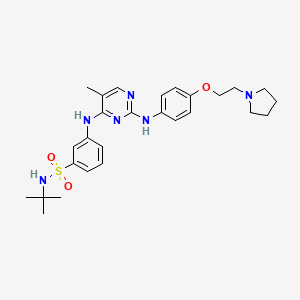Lykos Therapeutics (formerly MAPS Public Benefit Corporation) ("Lykos"), a company dedicated to transforming mental healthcare, announced that the U.S. Food and Drug Administration ("FDA") has accepted its new drug application ("NDA") for midomafetamine capsules ("MDMA") used in combination with psychological intervention, which includes psychotherapy (talk therapy) and other supportive services provided by a qualified healthcare provider for individuals with post-traumatic stress disorder ("PTSD"). The FDA has granted the application priority review and has assigned a Prescription Drug User Fee Act ("PDUFA") target action date of August 11, 2024. If approved, this would be the first MDMA-assisted therapy and psychedelic-assisted therapy.
"Securing priority review for our investigational MDMA-assisted therapy is a significant accomplishment and underscores the urgent unmet need for new innovation in the treatment of PTSD," said Amy Emerson, chief executive officer of Lykos Therapeutics. "We remain focused on working with the FDA through the review process and preparing for a controlled launch with an emphasis on quality should this potential treatment be approved."
The NDA submission included results from numerous studies including two randomized, double-blind, placebo-controlled Phase 3 studies (MAPP1 and MAPP2) evaluating the efficacy and safety of MDMA used in combination with psychological intervention versus placebo with therapy in participants diagnosed with severe or moderate to severe PTSD, respectively. Both MAPP1 and MAPP2 studies met their primary and secondary endpoints and were published in Nature Medicine. 1, 2 The primary endpoint for both studies was to assess changes in PTSD symptom severity as measured by the change from baseline in Clinician-Administered PTSD Scale for DSM-5 ("CAPS-5"). The key secondary endpoint of both studies was to assess improvement in functional impairment associated with PTSD as measured by the change from baseline in the Sheehan Disability Scale ("SDS"). No serious adverse events were reported in the MDMA group in either study.
The FDA grants priority review for drugs that, if approved, would represent significant improvements in the safety or effectiveness of the treatment, diagnosis, or prevention of serious conditions when compared to standard applications.
MDMA-assisted therapy has not been approved by any regulatory agency. The safety and efficacy of MDMA-assisted therapy has not been established for the treatment of PTSD. Investigational MDMA-assisted therapy is also being studied in other indications.
About MDMA-Assisted Therapy
MDMA (3,4-methylenedioxymethamphetamine) is not new to mental health professionals. MDMA is an entactogen— a class of psychoactive compounds that are differentiated from classic psychedelics (i.e., psilocybin, mescaline and LSD) and are defined based on their mechanism and known effects of increasing self-awareness leading to introspection and personal reflection.27,,28 In the 1970's and early 1980's MDMA was used in conjunction with talk therapy by mental health providers to enhance patients' access, processing, and communication of difficult emotions and experiences.29 In 1985, the U.S. Drug Enforcement Administration ("DEA") made MDMA a Schedule I drug under the Controlled Substances Act preventing it from being used for recreational or medical use. 30 Since then, research has shown the unique properties of MDMA allow it to act as a powerful catalyst to support psychotherapy by helping diminish the brain's fear response allowing people to access and process painful memories without being overwhelmed. 31 However, additional clinical trials would be needed to secure regulatory review and potential approval.
Lykos, with longstanding roots in advocacy for psychedelic medicine, pioneered the first randomized, double-blind, placebo controlled clinical trials evaluating the efficacy and safety of MDMA-assisted therapy as an investigational modality using midomafetamine (MDMA) in combination with psychological intervention to treat PTSD.
With a growing body of evidence supporting the potential medical use of MDMA, in 2017 the FDA granted the company's investigational MDMA-assisted therapy Breakthrough Therapy designation, a process designed to expedite the development and review of drugs intended to treat serious conditions for which preliminary scientific evidence indicates that it may demonstrate a substantial improvement over available therapies. If approved by the FDA, the U.S. Drug Enforcement Administration ("DEA") would be required to reschedule MDMA making it available for prescription medical use.


